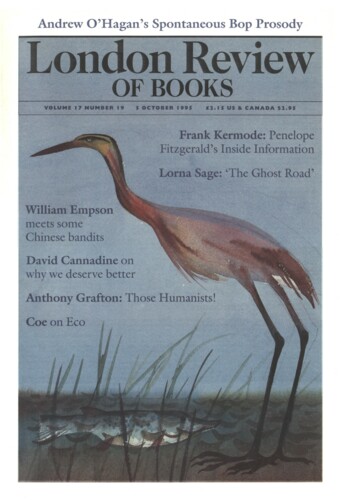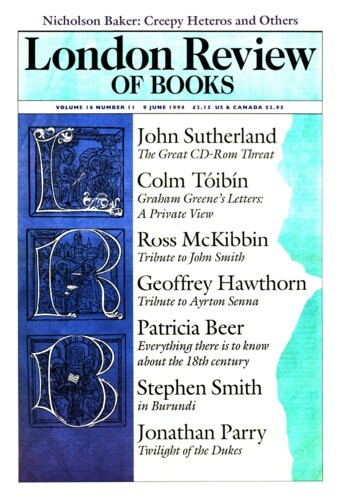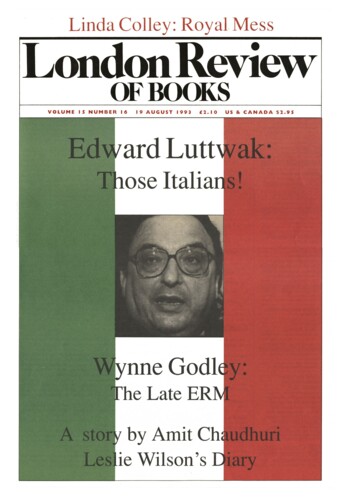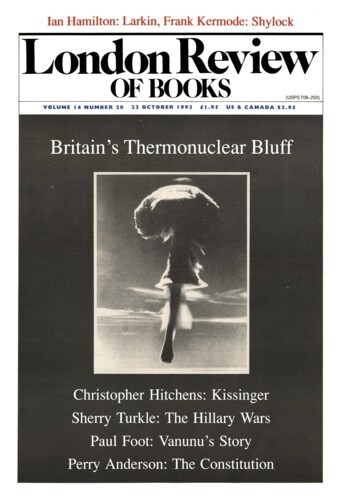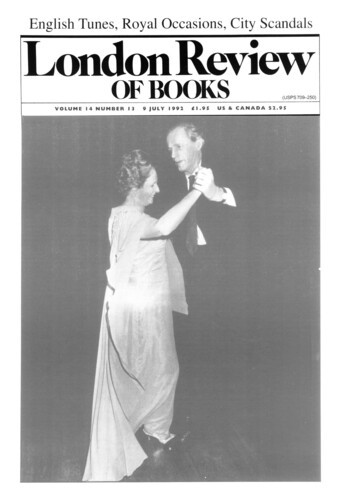Downland Maniacs
Michael Mason, 5 October 1995
‘Acid rain’ was first identified, and deplored, almost 150 years ago. That is a disconcerting fact for our modern environmental awareness – which thus appears not to be modern at all, but almost as old as the manufacturing processes that have caused all the trouble. We have a triumphalist perception of human treatment of the environment: for a long time there was benighted callousness about it, then wisdom dawned, in isolated heroic acts such as Silent Spring, and now we are blessedly enlightened, like South Sea cannibal islanders converted to Christianity. Patrick Wright’s new book is all about not being triumphalist, or taking any simple view on the history of attitudes to human use of the natural world. This sounds like an implausibly large endeavour for a book whose subject is just one bit of England (Purbeck), in the years (1916 to the present) in which it has been used as a tank firing range by the British Army. Purbeck and the Army in the 20th century is an episode of tremendous resonance, however, and Wright is an author wonderfully adapted to do it justice.’
